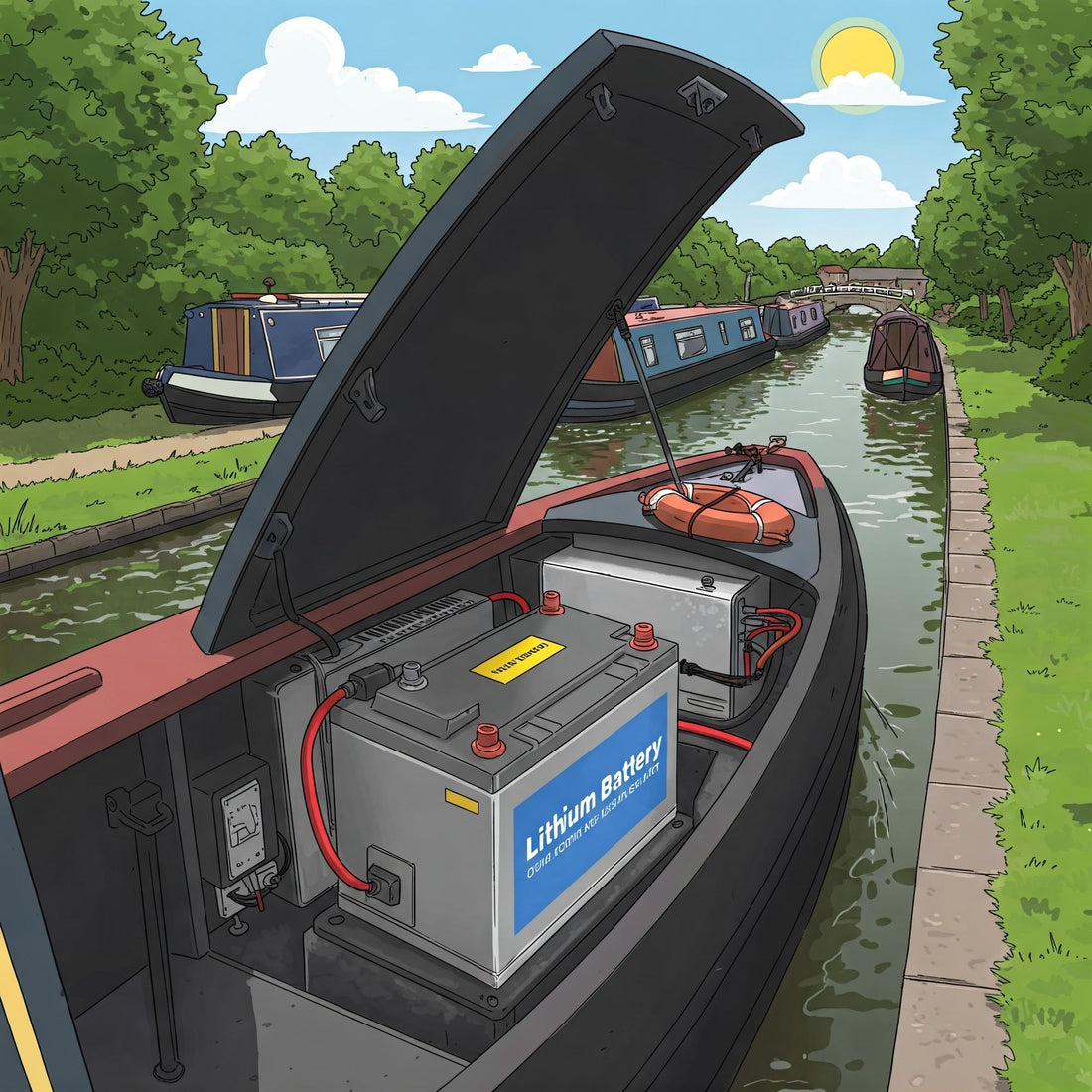
Powering Your Boat Sustainably: The Lithium Advantage for UK Waters
Share
For UK boat owners, reliable and efficient power is essential, whether you're enjoying a weekend cruise along the coast, navigating the canals, or embarking on a longer voyage. While traditional lead-acid batteries have long been the standard, lithium batteries are rapidly becoming the preferred choice for marine applications, offering significant advantages in performance, longevity, and overall cost-effectiveness.
Why Choose Lithium for Your Boat in the UK?
Lithium batteries, particularly lithium iron phosphate (LiFePO4) batteries, offer a compelling alternative to traditional lead-acid batteries for marine use in the UK. Here's why:
- Extended Lifespan: Lithium batteries can last significantly longer than lead-acid batteries, often providing 2000-5000 charge cycles compared to the 300-500 cycles of a typical lead-acid battery. This translates to years of reliable service and reduces the need for frequent replacements, saving you money in the long run.
- Lightweight and Compact: Weight is a critical factor on any boat. Lithium batteries are considerably lighter (up to 70% lighter) and more compact than equivalent lead-acid batteries. This reduces the overall weight of your vessel, improving fuel efficiency and handling, and frees up valuable space.
- High Discharge Rate: Lithium batteries can deliver a consistent and high discharge rate, providing reliable power for demanding appliances like inverters, refrigerators, and navigation equipment. This is particularly important for extended trips where you need to rely on your batteries for longer periods.
- Fast Charging: Lithium batteries charge much faster than lead-acid batteries, reducing downtime and allowing you to get back on the water sooner.
- Minimal Maintenance: Lithium batteries require virtually no maintenance. Unlike lead-acid batteries, you don't need to check water levels or worry about corrosion.
- Greater Depth of Discharge (DoD): Lithium batteries can be discharged to a much greater depth (often up to 80-90%) without damaging the battery, allowing you to utilize more of their capacity. Lead-acid batteries, on the other hand, should ideally not be discharged below 50% to maximize their lifespan.
- Safety Features: Modern lithium marine batteries incorporate sophisticated Battery Management Systems (BMS) that protect against overcharging, over-discharging, short circuits, and overheating, ensuring safe and reliable operation.
Specific Considerations for UK Boating:
- Weather Resistance: Ensure the lithium battery you choose is designed for marine environments and can withstand the UK's often damp and salty conditions. Look for batteries with a high IP rating (Ingress Protection).
- Cold Weather Performance: While lithium batteries generally perform well in a wide temperature range, consider the potential for cold weather operation, especially if you boat during the winter months. Some lithium batteries have built-in heating systems for optimal performance in cold conditions.
- Charging Infrastructure: Ensure your boat's charging system is compatible with lithium batteries. You may need to upgrade your charger to one that supports lithium charging profiles.
- Installation: While lithium batteries are relatively easy to install, it's always recommended to consult with a qualified marine electrician to ensure proper wiring and safety.
Integrating Solar for Sustainable Boating in the UK:
Combining lithium batteries with solar panels is an excellent way to create a sustainable and self-sufficient power system for your boat in the UK. Solar panels can charge your lithium batteries during daylight hours, reducing your reliance on shore power and minimizing your environmental impact. Get Green Energy offers a range of solar panels and complete solar kits specifically designed for marine applications.
Choosing the Right Lithium Battery for Your Boat:
When selecting a lithium battery for your boat, consider the following:
- Capacity (Ah): Determine your power consumption needs by calculating the total amp-hours (Ah) required by your appliances. Choose a battery with sufficient capacity to meet your needs, with some extra capacity for safety.
- Voltage (V): Ensure the battery voltage matches your boat's electrical system (typically 12V or 24V).
- Physical Size and Weight: Consider the available space on your boat and the weight limitations.
- Brand Reputation and Warranty: Choose a reputable brand with a good warranty.
- Budget: Lithium batteries are generally more expensive than lead-acid batteries upfront, but their longer lifespan and superior performance often make them a more cost-effective choice in the long run.
Get Green Energy: Powering Your UK Boating Adventures Sustainably
At Get Green Energy, we offer a wide selection of high-quality lithium batteries and marine solar solutions to power your boating adventures in the UK. Our expert team can help you choose the right products for your specific needs and provide guidance on installation and maintenance. Contact us today to explore the possibilities of sustainable boating and enjoy the freedom of reliable, clean power on the water.